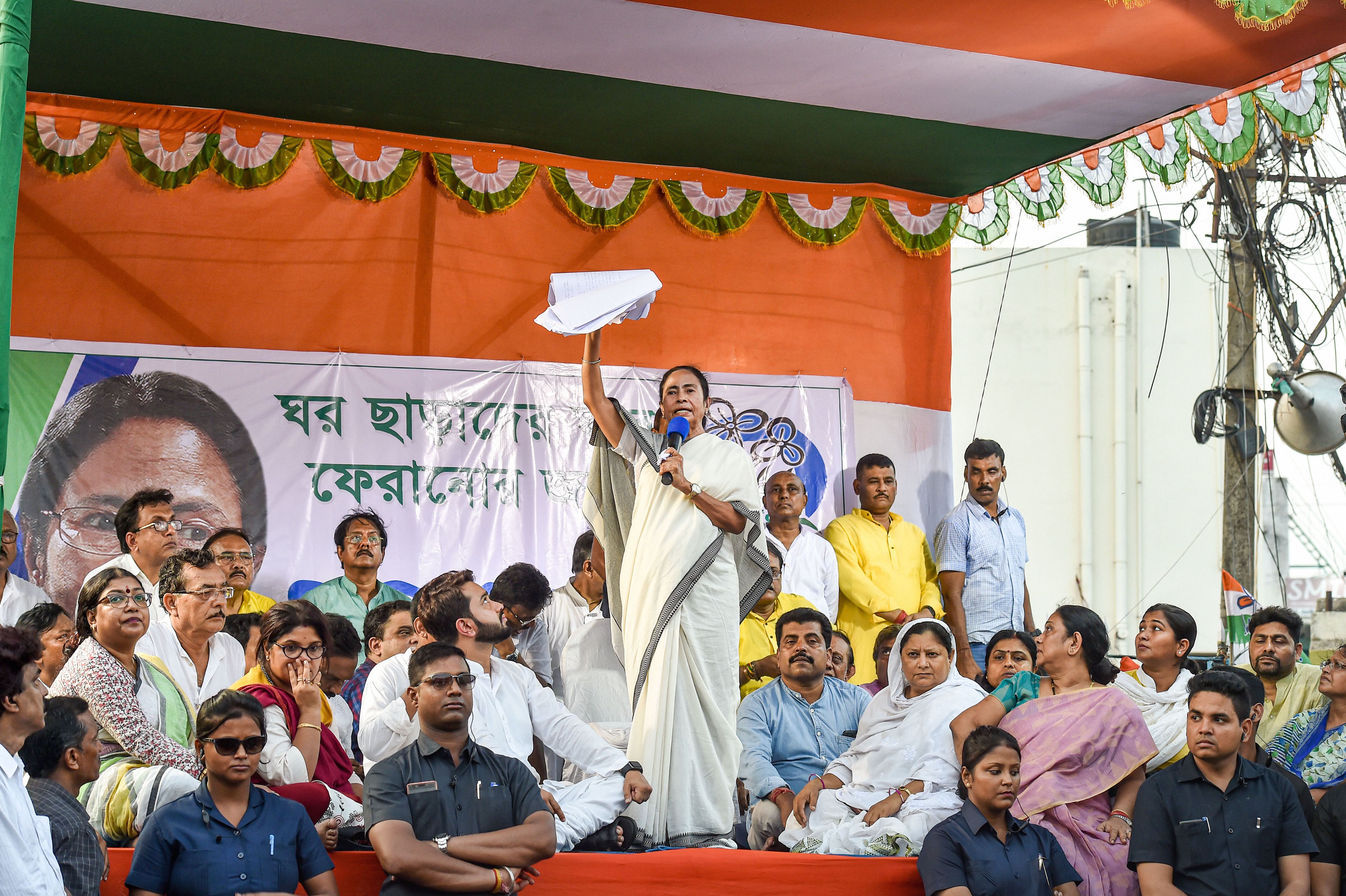
Where is the Bengal, which once swore by non-violence to decry injustice?
West Bengal, a state that has a reputation of rising up to the occasion, casting aside its political and ideological differences, should the need arise, has now become a poor shadow of its former self.

West Bengal, a state that has a reputation of rising up to the occasion, casting aside its political and ideological differences, should the need arise, has now become a poor shadow of its former self.
There was a time when the opposition leader of the state would rally behind the chief minister to maintain law and order. Now, both of them attempt to derive political mileage from issues that could lead to disturbance.
For instance, when Kolkata witnessed a few incidents of sporadic violence in the aftermath of the Babri Masjid demolition in 1992, Mamata Banerjee called on her bête noire and then chief minister Jyoti Basu to ask if he needed any help to prevent escalation of the flare up.
Needless to say, there was no major communal strife in the state after the demolition.
Fast forward to 2019, when the state erupted in violent protests against the new citizenship law, which has been viewed by many as discriminatory and communal, BJP leader Dilip Ghosh asserted that West Bengal would be the first state where the controversial law would be implemented. He had no qualms about the consequences of making such a provocative statement when the state was already burning.
Another BJP leader of the state, Rahul Sinha, went a step further and claimed that protestors were “illegal Bangladeshi migrants.” He even suggested that the chief minister should issue shoot-at-sight orders.
Taking forward the trail of thoughtless comments Trinamool Congress MP Kalyan Banerjee claimed the protestors were BJP agents.
“Political culture of leaders rising above narrow party interests to jointly deal with a crisis, which was the bedrock of our democracy, has floundered,” said Dhiraj Sengupta of the Association for Protection of Democratic Rights (APDR).
He said such provocative statements, if anything, would only add fuel to the fire.
Sengupta and other social activists also condemned the attempt to tag the protestors with a particular religious community.
“All right-thinking people of Bengal or for that matter India, irrespective of their faith, are against this biased citizenship law and want a mass movement against this legislation. But, we want peaceful protests,” Sengupta added.
His sentiment was echoed by theatre personality Koushik Sen as well. “There has to be protests against such discrimination. But in the name of protest, nobody should resort to violence. Arson and vandalism will dilute the purpose of the agitation,” he said.
Similar appeal for non-violence resistance has also come from minority organizations and religious leaders.
Since Friday (December 13), agitation against the Citizenship Act and the proposed nationwide National Register of Citizens (NRC) has turned violent mainly in Murshidabad, Howrah and Malda districts. Several trains, railway stations, buses and police vehicles were torched and damaged by angry mobs, disrupting rail and road communications in the entire state.
Internet services were suspended by the state government in six sensitive districts since Sunday (December 15) afternoon.
All India Imam-Muazzin and Social Welfare Organization in an appeal to the Muslim community said Islam never endorses violence and hence it should be ensured that the protests against the Citizenship Act should be peaceful.
The management committee of Kolkata’s largest mosque, Nakhoda Masjid invoked Mahatma Gandhi to emphasise peaceful protests. “Even Mahatma Gandhi had defied the salt law. But his movement was peaceful. No one should be harmed or inconvenienced in the name of protest,” said Mohmmad Qasim, a member of the managing committee of the mosque.
In 1992, Basu had approached the managing committee of the mosque to spread the message of communal harmony.
Members of the committee said that in 1905 even Rabindranath Tagore had gone to the two mosques, which stood there at that time to tie Rakhi threads, which the poet deftly use to promote “’brotherhood” to protest against the British government’s decision to partition Bengal on religious lines. The two mosques were merged in 1926 to construct the present structure of white stones and Belgium glass.
Former MP and a prominent member of Subhas Chandra Bose’s family Krishan Bose too urged the agitators to take a leaf out of freedom struggle to put up a non-violent and united protest.
Poet Joy Goswami, writers Abul Basar and Shirshendu Mukhopadhyay, singer Kabir Suman and host of other intellectuals and celebrities of the state too stressed the need for peaceful protests.
Even though Chief Minister Banerjee, who also has hit the streets to build a “mass movement” against the controversial law, has called for “united and peaceful” agitations, it is obvious that the responsibility of maintaining peace, in West Bengal, wrests with not politicians, but social activists, religious leaders, intellectuals and well-meaning citizens.


